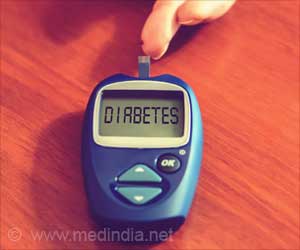According to two new studies the National Health Service (NHS) wastes more than 100 million pounds a year by providing people with non-insulin treated type2 diabetes monitor
According to two new studies the National Health Service (NHS) wastes more than 100 million pounds a year by providing people with non-insulin treated type2 diabetes monitor which only serves to make them nervous.
The studies have shown that the process is more likely to make such diabetic patients depressed than provide any long-term health benefits.It is known that self-monitoring is beneficial for patients who have type1 diabetes and those with type2 diabetes who use insulin to treat their condition.
However, the majority of people with type2 diabetes do not use insulin, and there has been debate over the effectiveness of self-monitoring for this group of people.
And still, despite a lack of evidence, self-monitoring has been widely promoted for this group in clinical practice.
In the one study, Dr Maurice O'Kane and colleagues from the University of Ulster conducted a randomised controlled trial to determine whether self-monitoring has an effect on blood glucose levels and the incidence of hypoglycaemia in people with newly diagnosed type2 diabetes.
They found no significant effect of self-monitoring on blood sugar levels or cases of hypoglycaemia after a year. In fact, the patients in the self-monitoring group reported higher levels of depression and anxiety.
Advertisement
According to researchers, the negative feelings reported in the study might be due to the enforced discipline of regular monitoring without any obvious benefit, rather than due to 'feelings of powerlessness in the face of high blood glucose readings.'
Advertisement
They found that self-monitoring of blood glucose is significantly more expensive than the standardised usual care.
They researchers also found that the additional healthcare costs of self-monitoring were about 90 pounds per patient each year.
In addition, people who self monitored reported a lower quality of life probably owing to significant increases in their levels of anxiety and depression.
The researchers concluded that self-monitoring in addition to standardised usual care is unlikely to provide this group of patients with significant lifetime health benefits or be cost effective for the NHS.
"This study therefore provides no convincing evidence for routinely recommending self monitoring to patients with non-insulin treated type 2 diabetes," BMJ quoted the researchers, as saying.
Source-ANI
KAV/L











